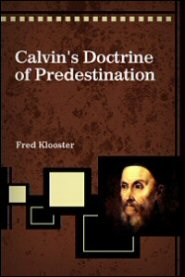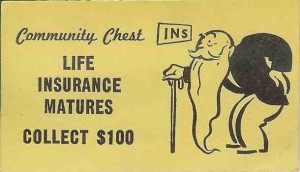Susan Rothkamm sued for wrongful levy, after the IRS seized a CD in her name to satisfy a tax liability of her husband. The Fifth Circuit reversed the dismissal of her claim, finding that she had standing as a “taxpayer” under the broad definition of 7701 of the Internal Revenue Code: “The term ‘taxpayer’ means any person subject to any internal revenue tax.” The Court also found that limitations was tolled during the pendency of her application for a Taxpayer Assistance Order, and that the IRS did not have discretion to affect the length of that tolling period. Rothkamm v. United States, No. 14-31164 (Sept. 21, 2015). A dissent warned: “I dissent from the majority’s newly minted tolling rule. While this creativity is driven by a desire to achieve fairness, it suffers the vice common to such endeavors – it does the opposite by disrupting a carefully structured regime for the resolution of disputes between the IRS and property owners.”
Monthly Archives: September 2015
 Myers slipped in the shower while working aboard a drilling rig in the Gulf of Mexico. In an echo of Blanton v. Newton Associates (a recent employment cases that turned on a prompt investigation into the facts), the rig operator quickly obtained a statement from Myers that said: “When getting out of shower, my shower shoe on left foot broke causing my left foot to slip and twist and resulted in falling out of shower.” When Myers took an inconsistent position in trial (arguing that he fell because of inadequate rails and mats), this statement was key to affirmance of a defense judgment. The Fifth Circuit also rejected an argument about the trial court’s review of the evidence: “Myers does not allege that the court did not see the flip flops; instead, he appears to object to the court’s failure to inspect them more closely. . . . When physical evidence is introduced at a bench trial, neither caselaw nor common sense establishes a minimum distance the judge must be from that evidence before the judge’s obligation to consider the evidence is satisfied.” Myers v. Hercules Offshore Services, No. 15-30020 (Sept. 25, 2015, unpublished).
Myers slipped in the shower while working aboard a drilling rig in the Gulf of Mexico. In an echo of Blanton v. Newton Associates (a recent employment cases that turned on a prompt investigation into the facts), the rig operator quickly obtained a statement from Myers that said: “When getting out of shower, my shower shoe on left foot broke causing my left foot to slip and twist and resulted in falling out of shower.” When Myers took an inconsistent position in trial (arguing that he fell because of inadequate rails and mats), this statement was key to affirmance of a defense judgment. The Fifth Circuit also rejected an argument about the trial court’s review of the evidence: “Myers does not allege that the court did not see the flip flops; instead, he appears to object to the court’s failure to inspect them more closely. . . . When physical evidence is introduced at a bench trial, neither caselaw nor common sense establishes a minimum distance the judge must be from that evidence before the judge’s obligation to consider the evidence is satisfied.” Myers v. Hercules Offshore Services, No. 15-30020 (Sept. 25, 2015, unpublished).
 Sanger Insurance Agency alleged that HUB International violated the antitrust laws to keep it from selling professional liability insurance to veterinarians. The Fifth Circuit reversed the dismissal of Sanger’s claims with two holdings. The Court first found that while Sanger was new to this business, it had done enough to establish antitrust standing, especially since Sanger alleged that the defendants’ anticompetitive activity had hurt its ability to enter the market: “[B]y pursuing a deal with a professional association of veterinarians and even achieving some success in its initial efforts, Sanger went beyond ‘the most basic preparatory steps’ that we require of nascent competitors.” While then remanding as to other claims, the Court found Sanger’s federal antitrust claims “reverse-preempted” under the McCarran-Ferguson Act.: “Assuming that HUB is engaged in exclusive dealing that prevents the insurers from writing insurance for other group plans, that conduct fortifies the Program HUB operates through the American Veterinary Medical Association. Keeping a large, geographically and professionally diverse pool of veterinarians in the Program—including significant numbers of small- animal, large-animal, mixed, and equine veterinarians—spreads risk.” Sanger Insurance Agency v. HUB Int’l, Inc, No. 14-40854 (Sept. 23, 2015).
Sanger Insurance Agency alleged that HUB International violated the antitrust laws to keep it from selling professional liability insurance to veterinarians. The Fifth Circuit reversed the dismissal of Sanger’s claims with two holdings. The Court first found that while Sanger was new to this business, it had done enough to establish antitrust standing, especially since Sanger alleged that the defendants’ anticompetitive activity had hurt its ability to enter the market: “[B]y pursuing a deal with a professional association of veterinarians and even achieving some success in its initial efforts, Sanger went beyond ‘the most basic preparatory steps’ that we require of nascent competitors.” While then remanding as to other claims, the Court found Sanger’s federal antitrust claims “reverse-preempted” under the McCarran-Ferguson Act.: “Assuming that HUB is engaged in exclusive dealing that prevents the insurers from writing insurance for other group plans, that conduct fortifies the Program HUB operates through the American Veterinary Medical Association. Keeping a large, geographically and professionally diverse pool of veterinarians in the Program—including significant numbers of small- animal, large-animal, mixed, and equine veterinarians—spreads risk.” Sanger Insurance Agency v. HUB Int’l, Inc, No. 14-40854 (Sept. 23, 2015).
 First Metropolitan Church sued Genesis Group, a company that helps churches obtain mortgage refinancing. The Fifth Circuit affirmed dismissal for lack of personal jurisdiction in a short opinion, echoing its recognition of recent Supreme Court opinions in Monkton Ins. Servs. v. Ritter, 768 F.3d 429 (5th Cir. 2014). An interactive website, even one that lists Texas business references, does not create general jurisdiction, and contracting with a Texas resident does not create jurisdiction if it does not “contemplate a long-term relationship with . . . continuing obligations and wide-reaching contacts.” First Metropolitan Church of Houston v. Genesis Group, No. 15-20186 (Sept. 17, 2015, unpublished)
First Metropolitan Church sued Genesis Group, a company that helps churches obtain mortgage refinancing. The Fifth Circuit affirmed dismissal for lack of personal jurisdiction in a short opinion, echoing its recognition of recent Supreme Court opinions in Monkton Ins. Servs. v. Ritter, 768 F.3d 429 (5th Cir. 2014). An interactive website, even one that lists Texas business references, does not create general jurisdiction, and contracting with a Texas resident does not create jurisdiction if it does not “contemplate a long-term relationship with . . . continuing obligations and wide-reaching contacts.” First Metropolitan Church of Houston v. Genesis Group, No. 15-20186 (Sept. 17, 2015, unpublished)
 Allstate sued a group of chiropractic clinics and law firms under RICO, alleging that they conspired to send them fraudulent bills for unnecessary services. Allstate won a 7-figure judgment at trial. The Fifth Circuit affirmed, reviewing some basic RICO principles after recent Supreme Court rulings:
Allstate sued a group of chiropractic clinics and law firms under RICO, alleging that they conspired to send them fraudulent bills for unnecessary services. Allstate won a 7-figure judgment at trial. The Fifth Circuit affirmed, reviewing some basic RICO principles after recent Supreme Court rulings:
- “Although the evidence proving the two will sometimes coalesce, the government still has to satisfy the organizational metric of the enterprise (including continuity and common purpose) and the statutorily enumerated predicated offenses. There is thus no impermissible collapsing of the distinction between the enterprise and the pattern of racketeering.” (applying a plain error standard of review)
- “[M]ail fraud and its place in RICO framework are different from a case alleging common-law fraud, and one of the differences is the lack of a reliance requirement.” Here, “[r]egardless of how proximate cause is sliced, Allstate proved it. There is no plausible argument that the insurers were unforeseeable victims or otherwise wronged by the caprice of chance.”
- As to damages, distinguishing a similar case that found inadequate proof that all paid-for services were unnecessary, the Court held: “There is no such deficiency here. The court instructed the jury, in awarding damages, to distinguish between the portions of the bills generated for unreasonable or unnecessary services and those not generated for those services. Allstate had experts examine all of the files, not just a representative sample, and one of those witnesses testified that Allstate had internally itemized the elements of each settlement.”
Allstate Ins. Co. v. Plambeck, No. 14-10574 (Sept. 17, 2015).
 The Fifth Circuit issued a revised opinon in Kovaly v. Wal-Mart Stores, No. 14-20697 (Sept. 22, 2015, unpublished). The new opinion reaches the same result — reversal of the Daubert exclusion of an expert about the standard of care for a Texas pharmacist asked to issue a 72-hour emergency prescription. It provides more detail about the expert’s analysis, eliminating some uncertainty in the original opinion about the role of Texas regulations in the expert’s work: “Brooke specifically analyzed how the various regulations overlap and how the history of the regulations led to the codification of particular exceptions but not others. He explained that his opinion was based not only on the regulations but also on their history, accepted practice, and pharmacist training.”
The Fifth Circuit issued a revised opinon in Kovaly v. Wal-Mart Stores, No. 14-20697 (Sept. 22, 2015, unpublished). The new opinion reaches the same result — reversal of the Daubert exclusion of an expert about the standard of care for a Texas pharmacist asked to issue a 72-hour emergency prescription. It provides more detail about the expert’s analysis, eliminating some uncertainty in the original opinion about the role of Texas regulations in the expert’s work: “Brooke specifically analyzed how the various regulations overlap and how the history of the regulations led to the codification of particular exceptions but not others. He explained that his opinion was based not only on the regulations but also on their history, accepted practice, and pharmacist training.”
 An appeal in a dispute between the Iraqi oil ministry and the Kurdistan governmental authority (“KRG”) ended in dismissal for mootness, after the tanker with the relevant oil “weighed anchor . . and . . . sailed to Ahkelon, Israel[.]” (The ship at issue, UNITED KALAVRYTA, appears at right and is presently underway in the Black Sea.) The Fifth Circuit rejected several arguments by the KRG that the dispute remained live, including:
An appeal in a dispute between the Iraqi oil ministry and the Kurdistan governmental authority (“KRG”) ended in dismissal for mootness, after the tanker with the relevant oil “weighed anchor . . and . . . sailed to Ahkelon, Israel[.]” (The ship at issue, UNITED KALAVRYTA, appears at right and is presently underway in the Black Sea.) The Fifth Circuit rejected several arguments by the KRG that the dispute remained live, including:
- Any request in the complaint for a declaratory judgment was merely ancillary to the claim to recover the tanker under admiralty law;
- No claim for interest remained because the Ministry sought to recover the oil, not money damages;
- The “such other and further relief” clause at the end of the complaint was not a pleading for money damages; and
- “[H]ypothetical future shipments do not prevent the dispute regarding the Cargo at issue here from being moot.”
The Court also rejected a request by the  KRG for vacatur of the lower court’s decision, noting in particular that “the KRG mooted this appeal through its voluntary decision to discharge the Cargo in Israel. In so doing, the KRG severely weakened its argument for equitable relief.” Ministry of Oil of the Republic of Iraq v. Kurdistan Region of Iraq, No. 15-40062 (Sept. 21, 2015, unpublished).
KRG for vacatur of the lower court’s decision, noting in particular that “the KRG mooted this appeal through its voluntary decision to discharge the Cargo in Israel. In so doing, the KRG severely weakened its argument for equitable relief.” Ministry of Oil of the Republic of Iraq v. Kurdistan Region of Iraq, No. 15-40062 (Sept. 21, 2015, unpublished).
 McGowan successfully sued his employer, Tractor Supply Co., for over $8 million in damages after a severe workplace injury. In the meantime, TSC’s umbrella carrier sued TSC and another carrier for a declaration about coverage obligations. The district court dismissed for lack of standing, and pursuant to its discretion under the Declaratory Judgment Act. The Fifth Circuit reversed; its principal holdings were: (1) under Texas insurance law, this sort of suit is justiciable after a liability determination at trial, and does not require exhaustion of appellate remedies; (2) the issues and parties were different in the two actions; and (3) the declaratory judgment suit was filed after the state case and otherwise showed “no indication of procedural fencing.” Ironshore Specialty Ins. Co. v. Tractor Supply Co. 14-51164 (Aug. 25, 2015, unpublished)
McGowan successfully sued his employer, Tractor Supply Co., for over $8 million in damages after a severe workplace injury. In the meantime, TSC’s umbrella carrier sued TSC and another carrier for a declaration about coverage obligations. The district court dismissed for lack of standing, and pursuant to its discretion under the Declaratory Judgment Act. The Fifth Circuit reversed; its principal holdings were: (1) under Texas insurance law, this sort of suit is justiciable after a liability determination at trial, and does not require exhaustion of appellate remedies; (2) the issues and parties were different in the two actions; and (3) the declaratory judgment suit was filed after the state case and otherwise showed “no indication of procedural fencing.” Ironshore Specialty Ins. Co. v. Tractor Supply Co. 14-51164 (Aug. 25, 2015, unpublished)
 A security company required that its employees travel to a designated break location at lunchtime, substantially eating into their 30-minute lunch break. The Fifth Circuit reversed summary judgment for the company on FLSA claims, reasoning: “Unlike a requirement that the employee stay in uniform, or even one that may result in the employee having to perform a duty on rare occasions, a jury could find that preventing the employee from eating—ostensibly the main purpose of the break—for twelve out of thirty minutes during every break is a meaningful limitation on the employee’s freedom. The travel obligation thus cannot be deemed a mere ‘inconvenience’ as a matter of law.” Naylor v. Securiguard, Inc., No. 14-60637 (Sept. 15, 2015). Whether the “40 percent rule” carries over to other areas of summary judgment practice remains to be seen, but Naylor still stands as a cogent and highly readable review of a basic part of the modern workplace.
A security company required that its employees travel to a designated break location at lunchtime, substantially eating into their 30-minute lunch break. The Fifth Circuit reversed summary judgment for the company on FLSA claims, reasoning: “Unlike a requirement that the employee stay in uniform, or even one that may result in the employee having to perform a duty on rare occasions, a jury could find that preventing the employee from eating—ostensibly the main purpose of the break—for twelve out of thirty minutes during every break is a meaningful limitation on the employee’s freedom. The travel obligation thus cannot be deemed a mere ‘inconvenience’ as a matter of law.” Naylor v. Securiguard, Inc., No. 14-60637 (Sept. 15, 2015). Whether the “40 percent rule” carries over to other areas of summary judgment practice remains to be seen, but Naylor still stands as a cogent and highly readable review of a basic part of the modern workplace.
 In a dispute about insurance coverage for a False Claims Act case involving the repair of Coast Guard cutters, the relevant exclusion reached: “[t]he failure of your products to meet any
In a dispute about insurance coverage for a False Claims Act case involving the repair of Coast Guard cutters, the relevant exclusion reached: “[t]he failure of your products to meet any
predetermined level of fitness or performance and/or guarantee of such fitness or level of performance and/or any consequential loss arising therefrom.” The insured argued that “predetermination” implied a bilateral agreement, while a “requirement” was unilateral and did not implicate the exclusion. The Fifth Circuit disagreed for several reasons: “But ‘predetermined’ means only ‘established, decided upon, or
decreed beforehand.’ It implies nothing about how a determination comes about, or who has the authority to determine. A single party can ‘determine’ something, and can do so in advance: there is nothing inherently bilateral about predetermination. And even if there were, the complaint lays out straightforwardly that [the insured] failed to meet a requirement that the parties together determined in advance. (citation omitted)” XL Specialty Ins. Co. v. Bollinger Shipyards, Inc., No. 14-31283 (Aug. 27, 2015).
Here is my PowerPoint for the “Fifth Circuit Update” that I presented at the State Bar’s Advanced Civil Appellate course last week in Austin. (Note that the Fifth Circuit has since issued a revised opinion in the Daubert case of Kovaly v. Wal-Mart, No. 14-20697 (Sept. 22, 2015, unpublished).
 A contractor who undertakes to build a house does not have insurance coverage, because of the “your work” exception, if soil movement causes an unacceptable foundation failure. This exception does not apply to a contractor with a specified and limited scope of work — for example, wall damage is not “your work” for a contractor hired only to repair a foundation. Feaster v. Mid-Continent Casualty Co., No. 15-20074 (Aug. 27, 2015, unpublished).
A contractor who undertakes to build a house does not have insurance coverage, because of the “your work” exception, if soil movement causes an unacceptable foundation failure. This exception does not apply to a contractor with a specified and limited scope of work — for example, wall damage is not “your work” for a contractor hired only to repair a foundation. Feaster v. Mid-Continent Casualty Co., No. 15-20074 (Aug. 27, 2015, unpublished).
 A prospective plaintiff in a medical malpractice case in Louisiana must submit the claim to a medical review panel before filing suit. When suit is filed before the panel is done, district courts have divided on whether an in-state defendant is “improperly joined” for purposes of a diversity analysis in a removal. In Flagg v. Stryker Corp., the Court concluded that such a defendant is not improperly joined, finding that the panel did not actually adjudicate the claim, and that the panel process could be waived by the parties. A dissent reasoned that the Louisiana statute was analogous to federal statutes where thee court had found improper joinder in similar situations. No. 14-31169 (Sept. 4, 2015).
A prospective plaintiff in a medical malpractice case in Louisiana must submit the claim to a medical review panel before filing suit. When suit is filed before the panel is done, district courts have divided on whether an in-state defendant is “improperly joined” for purposes of a diversity analysis in a removal. In Flagg v. Stryker Corp., the Court concluded that such a defendant is not improperly joined, finding that the panel did not actually adjudicate the claim, and that the panel process could be waived by the parties. A dissent reasoned that the Louisiana statute was analogous to federal statutes where thee court had found improper joinder in similar situations. No. 14-31169 (Sept. 4, 2015).
 In the wake of the Deepwater Horizon accident, plaintiffs sought to bring two class actions against BP alleging violations of federal securities law — one regarding BP’s representations about its pre-spill safety procedures, and one about BP’s post-accident statements as to the flow rate of oil after the spill occurred. The district court certified the post-spill class, concluding that the plaintiffs had established a model of damages consistent with their liability case and capable of measurement across the class, and refused to certify the pre-spill class, finding that it had not satisfied the “common damages” burden established by the Supreme Court in Comcast Corp. v. Behrend, 133 S. Ct. 1426 (2013). The Fifth Circuit affirmed. As to the post-spill class, the Court reviewed BP’s criticisms of the plaintiffs’ damages expert, and found that they were not so potent as to invalidate his theory at the class certification stage. As to the pre-spill class, however, the Court agreed that the expert failed to exclude class members who would have bought the stock even with full knowledge of the alleged risks, making his analysis infirm for certification purposes. Ludlow v. BP, PLC, No. 14-20420 (revised Sept.15, 2015).
In the wake of the Deepwater Horizon accident, plaintiffs sought to bring two class actions against BP alleging violations of federal securities law — one regarding BP’s representations about its pre-spill safety procedures, and one about BP’s post-accident statements as to the flow rate of oil after the spill occurred. The district court certified the post-spill class, concluding that the plaintiffs had established a model of damages consistent with their liability case and capable of measurement across the class, and refused to certify the pre-spill class, finding that it had not satisfied the “common damages” burden established by the Supreme Court in Comcast Corp. v. Behrend, 133 S. Ct. 1426 (2013). The Fifth Circuit affirmed. As to the post-spill class, the Court reviewed BP’s criticisms of the plaintiffs’ damages expert, and found that they were not so potent as to invalidate his theory at the class certification stage. As to the pre-spill class, however, the Court agreed that the expert failed to exclude class members who would have bought the stock even with full knowledge of the alleged risks, making his analysis infirm for certification purposes. Ludlow v. BP, PLC, No. 14-20420 (revised Sept.15, 2015).
Plaintiff claimed that he was not given proper medications by a private corrections company while incarcerated. The ensuing coverage litigation turned on a “medical services” exclusion, which said in relevant part:
“a) medical, surgical, dental or nursing treatment to such person or the person inflicting the injury including the furnishing of food or beverages in connection therewith;
b) furnishing or dispensing of drugs or medical, dental or surgical supplies or appliances if the injury occurs after the Named Insured has relinquished possession thereof to others;”
The Fifth Circuit agreed with the insurer that (a) and (b) dealt with different, distinct, situations and had to be harmonized – noting that an “or” between two later subparts supported this reading. Accordingly, the exclusion in (a) could apply even if (b) was not triggered. LCS Corrections Services v. Lexington Ins. Co., No. 14-40494 (Sept. 4, 2015).
 Revisiting the forum non conveniens question whether Mexico is an “available alternative” forum for a tort claim, the Fifth Circuit reaffirmed that the damages caps imposed by Mexican law do not disqualify it as a forum, and that this defense may be raised even in the context of moving to set aside a default judgment. Moreno v. LG Electronics, USA, Inc., No. 14-40563 (Sept. 8, 2015).
Revisiting the forum non conveniens question whether Mexico is an “available alternative” forum for a tort claim, the Fifth Circuit reaffirmed that the damages caps imposed by Mexican law do not disqualify it as a forum, and that this defense may be raised even in the context of moving to set aside a default judgment. Moreno v. LG Electronics, USA, Inc., No. 14-40563 (Sept. 8, 2015).
 The issue in United States v. CITGO was whether an “equalization tank” — a holding tank that plays a role in the process for handling oil refinery wastewater — is an “oil-water separator” within the meaning of the regulations implementing the Clean Water Act. The jury instructions quoted the regulation’s definition of an oil-water separator and then added: “[t]he definition of oil-water separator does not require that [it] have any or all of the ancillary equipment mentioned such as forebays, weirs, grit chambers, and sludge hoppers . . . . An oil-water separator is defined by how it is used.” The Fifth Circuit found an abuse of discretion in that additional sentence and reversed CITGO’s convictions: “This purely functional explanation is not what [the regulation] says, however: it defines an oil-water separator by how it is used and by its constituent parts. . . . Although the jury was also provided the exact text of Subpart QQQ, the court’s instruction told them what it means and thus undoubtedly affected the verdict. For this harmful error, the Clean Air Act convictions must be reversed.” No. 14-40128 (Sept. 4, 2015).
The issue in United States v. CITGO was whether an “equalization tank” — a holding tank that plays a role in the process for handling oil refinery wastewater — is an “oil-water separator” within the meaning of the regulations implementing the Clean Water Act. The jury instructions quoted the regulation’s definition of an oil-water separator and then added: “[t]he definition of oil-water separator does not require that [it] have any or all of the ancillary equipment mentioned such as forebays, weirs, grit chambers, and sludge hoppers . . . . An oil-water separator is defined by how it is used.” The Fifth Circuit found an abuse of discretion in that additional sentence and reversed CITGO’s convictions: “This purely functional explanation is not what [the regulation] says, however: it defines an oil-water separator by how it is used and by its constituent parts. . . . Although the jury was also provided the exact text of Subpart QQQ, the court’s instruction told them what it means and thus undoubtedly affected the verdict. For this harmful error, the Clean Air Act convictions must be reversed.” No. 14-40128 (Sept. 4, 2015).
 Bartos, an injured seaman, sued for future lost wages. His expert offered calculations based on a retirement age of 55.8 (from a table of work-life expectancies) or 67 (the Social Security full-retirement age). The Fifth Circuit reversed a damages award based on the older age and rendered an award based on the younger one, reasoning: “Barto’s economist did not provide any reason to
Bartos, an injured seaman, sued for future lost wages. His expert offered calculations based on a retirement age of 55.8 (from a table of work-life expectancies) or 67 (the Social Security full-retirement age). The Fifth Circuit reversed a damages award based on the older age and rendered an award based on the younger one, reasoning: “Barto’s economist did not provide any reason to  believe that Barto would continue to work past his statistical work-life expectancy. The only relevant evidence Barto presented at trial was his testimony that he plans to work ‘[a]s long as I can retire. Whatever the retirement age is.’ This scant evidence was not enough to show that Barto ‘by virtue of his health or occupation or other factors, is likely to live and work a longer, or shorter, period than the average.'” Barto v. Shore Construction LLC, No. 14-31326 (revised Sept. 29, 2015).
believe that Barto would continue to work past his statistical work-life expectancy. The only relevant evidence Barto presented at trial was his testimony that he plans to work ‘[a]s long as I can retire. Whatever the retirement age is.’ This scant evidence was not enough to show that Barto ‘by virtue of his health or occupation or other factors, is likely to live and work a longer, or shorter, period than the average.'” Barto v. Shore Construction LLC, No. 14-31326 (revised Sept. 29, 2015).
In one of its infrequent but steady appearances in the Fifth Circuit, the Rooker/Feldman doctrine arose in a federal court lawsuit alleging misconduct in state court about the confirmation and enforcement of a large arbitration award. Building on Truong v. Bank of America, 717 F.3d 377 (5th Cir. 2013), the Court affirmed the dismissal of claims about collection efforts, finding that “the [state court judgment itself was the source of these injuies.” As to civil rights claims about the proceedings leading up to confirmation, however, “the timing of the injury was before the state court entered judgment. And unlike . . . the conversion claim described above, none of the alleged conspirators was acting under the authority of the turnover orders in seeking to obtain a remedy.” Land & Bay Gauging, LLC v. Shor, No. 14-40259 (Aug. 21, 2015, unpublished).
 An accident occurred while a dredge attempted to anchor itself in the seabed. The legal issue was whether the dredge’s activity triggered the notice requirements of a Louisiana statute involving “excavation.” The Fifth Circuit reasoned: “The plaintiffs may well be right that the movement of earth is an inevitable result of anchoring, and thus that a person who engages in anchoring does so knowing that he will cause the movement of earth. But under the [statute], an activity constitutes ‘excavation’ only if the ‘purpose’ — the actual object — of engaging in it is the ‘movement . . . of earth.’ And the object of ‘anchoring’ is, unmistakably, the securing of a ship, not the movement of earth.” Plains Pipeline LP v. Great Lakes Dredge, No. 14-31046 (Aug. 12, 2015, unpublished).
An accident occurred while a dredge attempted to anchor itself in the seabed. The legal issue was whether the dredge’s activity triggered the notice requirements of a Louisiana statute involving “excavation.” The Fifth Circuit reasoned: “The plaintiffs may well be right that the movement of earth is an inevitable result of anchoring, and thus that a person who engages in anchoring does so knowing that he will cause the movement of earth. But under the [statute], an activity constitutes ‘excavation’ only if the ‘purpose’ — the actual object — of engaging in it is the ‘movement . . . of earth.’ And the object of ‘anchoring’ is, unmistakably, the securing of a ship, not the movement of earth.” Plains Pipeline LP v. Great Lakes Dredge, No. 14-31046 (Aug. 12, 2015, unpublished).
 Employees of the Stanford Financial Group sought coverage for attorneys fees incurred in defending federal criminal charges. The district court held the policy ambiguous and found coverage under the contra proferentem doctrine. The insurer sought reversal based on the “sophisticated insured” exception to that doctrine under Texas law. (A previous panel certified the question whether this exception existed in Texas to the Texas Supreme Court, who declined to answer it by resolving that case on other grounds.) Concluding that if Texas were to recognize the exception, it would
Employees of the Stanford Financial Group sought coverage for attorneys fees incurred in defending federal criminal charges. The district court held the policy ambiguous and found coverage under the contra proferentem doctrine. The insurer sought reversal based on the “sophisticated insured” exception to that doctrine under Texas law. (A previous panel certified the question whether this exception existed in Texas to the Texas Supreme Court, who declined to answer it by resolving that case on other grounds.) Concluding that if Texas were to recognize the exception, it would  apply a “middle-ground approach,” the majority affirmed: “Absent any information about the content of the negotiations, how the contracts were prepared, or other indicators of relative bargaining power, [the insurer] did not present evidence that the insured did or could have influenced the terms of the exclusion.” A dissent would have sidestepped saying anything about the exception, preferring to affirm on the ground that the policy unambiguously provided coverage. Certain Underwriters at Lloyds v. Perraud, No. 14-10849 (Aug. 12, 2015, unpublished).
apply a “middle-ground approach,” the majority affirmed: “Absent any information about the content of the negotiations, how the contracts were prepared, or other indicators of relative bargaining power, [the insurer] did not present evidence that the insured did or could have influenced the terms of the exclusion.” A dissent would have sidestepped saying anything about the exception, preferring to affirm on the ground that the policy unambiguously provided coverage. Certain Underwriters at Lloyds v. Perraud, No. 14-10849 (Aug. 12, 2015, unpublished).
Continuing a series of opinions that vacated findings of contempt – most recently in Waste Management v. Kattler, 776 F.3d 336 (5th Cir. 2015) – the Fifth Circuit vacated a contempt finding against an attorney for allegedly encouraging his client to make inappropriate online postings. Test Masters Educational Services v. Singh Educational Services, No. 13-20250 (Aug. 21, 2015). Applying Waste Management, the Court found inadequate notice from a show-cause order that only named the client. On the merits, agreeing that the relevant injunction against the client bound the attorney, the Court found no clear and convincing evidence that he personally had violated the injunction.